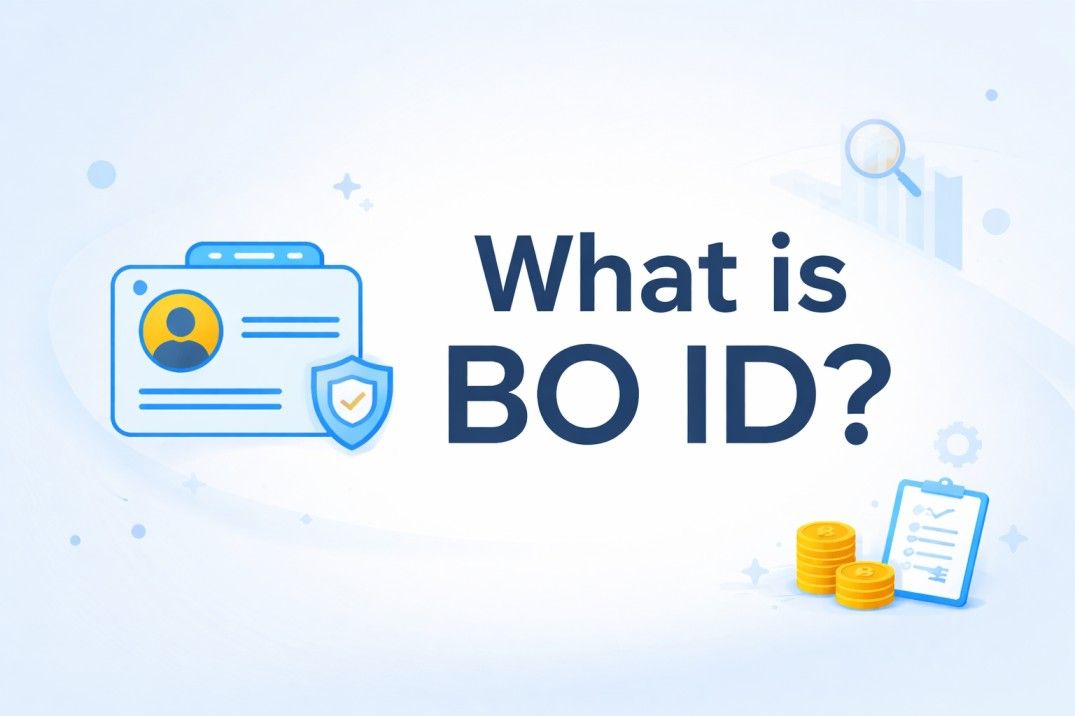- Home
- Blog
- Demat Account
- Difference Between Dematerialisation And Rematerialisation
- Difference Between Dematerialisation And Rematerialisation
Difference Between Dematerialisation And Rematerialisation

- Published Date: December 04, 2024
- Updated Date: June 17, 2025
- By Team Choice
In the world of investing when it comes to shares, dematerialisation and rematerialisation are crucial concepts that every investor should understand. With the rise of digital transactions in the stock market, knowing how these processes work can ensure smooth management of your investments. Whether you're opening a Demat Account, investing in stocks, or exploring mutual funds, these terms play a vital role.
This article will explore the difference between dematerialisation and rematerialisation.
What is Dematerialisation?
Dematerialisation is the process of converting physical share certificates into electronic form. This transformation makes managing investments more accessible and eliminates the risks associated with physical certificates, such as loss, theft, or damage.
Key Features of Dematerialisation:
- Efficiency: Investors can manage shares seamlessly using a Demat Account.
- Security: Eliminates risks related to physical certificates.
- Convenience: Facilitates quick transactions, especially during IPO applications or stock market trades.
By leveraging a Demat Account, investors can access their portfolio online, enhancing the experience of investing in stocks and mutual funds.
What is Rematerialisation?
Rematerialisation, on the other hand, is the process of converting shares held in electronic form back into physical certificates. This is usually undertaken when an investor no longer wishes to hold their shares in a Demat Account or prefers physical custody for personal reasons.
Key Features of Rematerialisation:
- Paper-Based Ownership: Shares are issued as physical certificates.
- Less Common: With the increasing digitisation of the stock market, rematerialisation is rare.
- Manual Transactions: Transactions involving physical shares require additional documentation and time.
What are the Differences Between Dematerialisation and Rematerialisation?
Dematerialisation and rematerialisation are opposite processes, each serving distinct purposes in share management. Here’s a detailed comparison:
| Feature | Dematerialisation | Rematerialisation |
|---|---|---|
| Definition | Conversion of physical share certificates into electronic form. | Conversion of electronic shares back into physical certificates. |
| Purpose | Enhances convenience, security, and efficiency in managing shares. | Allows investors to regain physical ownership of their shares. |
| Maintenance | Your Depository Participant oversees the management of your Demat account. | The shares issuing company is responsible for maintaining rematerialised share records. |
| Share Identification | Dematerialised shares lack unique identification numbers. | Rematerialised shares are assigned distinct identification numbers. |
| Initiation | Request a DRF form from your depository participant (DP) to initiate the process. | Submit a rematerialisation request to the depository participant (DP) to start the process. |
| Processing Time | Generally, the process takes up to 15 to 30 days. | Typically takes up to 30 days. |
| Risk | Secure and free from risks like theft, damage, or loss. Can be prone to digital security risks. | Physical certificates are prone to theft, damage, or misplacement. |
| Costs | Nominal fees are charged by the DP for the dematerialisation process. | May involve higher charges due to manual handling and physical certificate issuance. |
| Preference | Preferred for modern trading and seamless participation in IPOs or mutual funds. | Rarely used, mainly by traditional investors or for specific needs. |
SEBI Mandates Dematerialisation
The Securities and Exchange Board of India (SEBI) has made significant strides toward a paperless securities market.
For Investors:
To enhance investor protection and streamline the trading process, SEBI has mandated that physical share certificates cannot be transferred after April 1, 2019, unless they are converted into electronic format. Investors can initiate this process by visiting a Depository Participant (DP) and submitting a Demat Account Request Form (DRF).
For Private Companies:
The Ministry of Corporate Affairs (MCA) has issued a directive requiring private companies, excluding small companies, to dematerialise their shares by September 30, 2024. This move aligns with the Companies (Prospectus and Allotment of Securities) Second Amendment Rules, 2023. Small companies are defined as those with a paid-up capital not exceeding ₹4 crore and a turnover not exceeding ₹40 crore.
Importance of Dematerialisation and Rematerialisation
Both dematerialisation and rematerialisation play pivotal roles in the stock market by offering flexibility and catering to diverse investor preferences. Here's why they are important:
Importance of Dematerialisation:
1. Ease of Transactions:
Managing shares through a Demat Account streamlines trading, IPO participation, and mutual fund investments.
2. Enhanced Security:
Electronic shares eliminate risks like loss, theft, or damage associated with physical certificates.
3. Improved Accessibility:
Investors can monitor their portfolios online, enhancing convenience and transparency in stock trading.
4. Faster Settlements:
Digital shareholding accelerates trade settlements, reducing delays and enhancing liquidity in the market.
Importance of Rematerialisation:
1. Physical Ownership:
Ideal for investors who prefer physical certificates for traditional or personal reasons.
2. Backup Option:
Acts as a safeguard for those wary of complete reliance on digital systems.
3. Flexibility:
Provides the choice to revert to physical shareholding if electronic management is not preferred.
Challenges Faced Between Dematerialisation vs. Rematerialisation
While both processes are vital, they come with distinct challenges:
Challenges in Dematerialisation:
1. Technological Dependency:
Investors unfamiliar with digital platforms may face difficulties managing a Demat account.
2. Technical Glitches:
Occasional system issues or errors in processing may delay transactions.
3. Security Concerns:
Although the Demat account reduces the risks related to physical share certificates, it may pose digital risks like cyber threats and hacking.
Challenges in Rematerialisation:
1. Time-consuming Process:
Unlike dematerialisation, rematerialisation involves extensive documentation and manual handling, often taking up to 30 days.
2. Higher Risk:
Physical certificates are susceptible to loss, theft, or damage.
3. Limited Adoption:
With the digitisation of the stock market, rematerialisation is rarely needed, making it less familiar to many investors.
Things to consider for Dematerialisation and Rematerialisation
When opting for dematerialisation or rematerialisation, careful planning ensures a smooth and efficient process. Here are key considerations:
For Dematerialisation:
- Open a Reliable Demat Account: Choose a trustworthy depository participant (DP) to manage your shares electronically. Ensure they have good reviews and robust technology for seamless transactions.
- Verify Documentation: Keep essential documents like PAN cards, share certificates, and identification proof ready for processing.
- Understand Fees: Most DPs charge nominal fees for dematerialisation. Compare charges across providers to find the most cost-effective option.
- Compliance: Ensure your shares are compliant with SEBI regulations to avoid processing delays.
For Rematerialisation:
- Submit the Right Forms: Complete the rematerialisation request form accurately and submit it to your DP.
- Time Management: Be prepared for a longer processing time (up to 30 days) due to the manual handling of physical certificates.
- Safety of Physical Shares: Once received, store physical certificates securely to avoid risks of loss or damage.
- Charges: Factor in the higher costs of rematerialisation due to physical issuance and paperwork.
By considering these points, you can navigate both processes with ease and make the best choice based on your investment preferences.
Conclusion
Understanding the processes of dematerialisation and rematerialisation is crucial for efficient portfolio management. While dematerialisation offers a digital, secure, and hassle-free way to manage shares, rematerialisation provides flexibility for those who prefer physical ownership.
By opening a Demat Account, investors can access benefits like quick transactions, secure storage, and seamless participation in stocks, mutual funds, and IPOs. At the same time, knowing when and how to opt for rematerialisation ensures you retain full control over your investments.
FAQs
Q.1. Can I switch back to electronic form after rematerialisation?
Yes, after rematerialisation, you can reconvert your physical shares into electronic form by initiating the dematerialisation process through your Demat Account.
Q.2. How long does the dematerialisation/rematerialisation process take?
Dematerialisation: Typically 15-300 business days.
Rematerialisation: This may take up to 30 days, depending on the depository participant.
Q.3. Are there any charges for these processes?
Yes, both dematerialisation and rematerialisation may involve nominal fees, which vary between depository participants
Recommended for you

Types Of Foreign Direct Investment (FDI): Benefits, and Key Factors

Blue Chip Stocks: Meaning, Benefits, Risks & Top Picks in India

What is BO ID? Meaning, Importance & How to Find?
